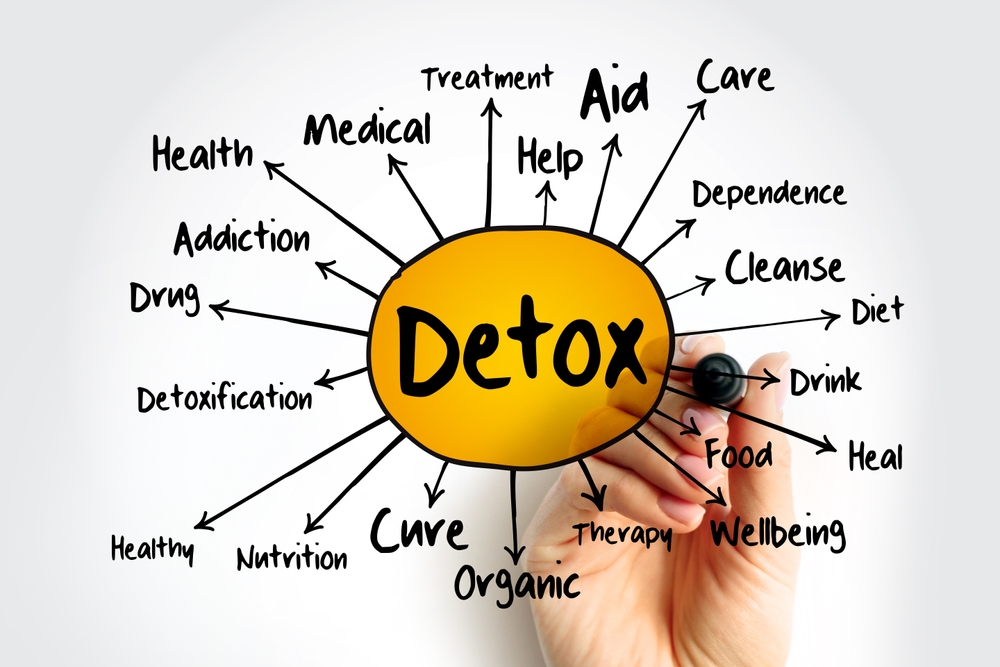Last Updated:
July 21st, 2025
Amphetamine Detox | Withdrawal Symptoms to Expect
Feeling nervous about starting your recovery journey is totally understandable. There is a lot of mixed information out there about amphetamine withdrawal and detox but it can be the most important thing you ever do. Amphetamine detox lays the groundwork for lasting sobriety, kick-starting the healing process and preparing you for the next recovery phases. If you are ready to turn over a new leaf, this page will explain how to safely detox your body from amphetamines and the treatment options available to you.

What is amphetamine detox?
Amphetamine detox is the first stage of comprehensive treatment for amphetamine addiction. It involves quitting amphetamines so that your body can rid itself of all the drugs and toxins and start healing. This can be done at home, but as you may already know, home amphetamine detox is rarely successful and can be distressing and dangerous. This is because of amphetamine withdrawal symptoms, which can cause health issues and relapse.
This is why treatment at an amphetamine detox centre is necessary for everyone who is addicted. These facilities make sure you are well looked after and provide comprehensive amphetamine detox programmes to set you up for ongoing treatment.
What is amphetamine withdrawal?
Amphetamine withdrawal marks the period of adjustment your body endures once you cease taking the drugs. This adjustment happens because your brain becomes accustomed to the effects of amphetamines when you have been taking them over a long period. After a while, amphetamines partly take over dopamine release and central nervous system communication, and your brain forgets how to do these functions on its own.
When you stop using amphetamines during detox, the brain has to take these functions up again and it struggles at first to remember how. This leads to various amphetamine withdrawal symptoms, which can include:
- Feeling constantly tired and worn out
- A constant sense of tiredness
- Experiencing deep sadness or a sense of emptiness
- Feeling nervous or on edge
- Discomforts such as aches, muscle twitches and body pains
- Quick to anger or frustration
- Sudden changes in mood
- An increase in hunger
- Trouble sleeping
- A strong desire to use amphetamines again
- Experiencing hallucinations, delusions and intense paranoia (a rare condition called amphetamine psychosis which can affect long-term users)
These symptoms of amphetamine withdrawal can take a massive toll if you don’t have any support. For many people who attempt detox at home, amphetamine withdrawal systems can be too much to bear and cause them to start using again. That is why medical amphetamine detox is so beneficial because you will be supported until your brain catches up and all the symptoms have passed.
How long does amphetamine withdrawal last?
One of the most commonly asked questions at addiction treatment centres is, “How long does it take to detox from amphetamine?” The duration and intensity of withdrawal from amphetamines depend largely on how frequently and how much you’ve used, along with your physical and mental health status.
The acute amphetamine withdrawal phase generally lasts from one to two weeks and includes the majority of physical symptoms. Afterwards, you may go through an extended period of amphetamine withdrawal, lasting several weeks to months. This is often marked by ongoing psychological symptoms such as cravings and emotional instability.
While everyone is different, here is a closer look at what you may experience:
The benefits of amphetamine detox at a professional treatment centre
When weighing the decision between home detox and an amphetamine detox centre, it is important to understand why professional treatment is so much safer and more effective:
Tips for a successful amphetamine detox
Amphetamine detox can be physically and mentally tough but there are four simple strategies to boost your chances of a smooth detox:
- Stick to your amphetamine detox plan: Follow the personalised detox plan devised by your detox team. This includes any medication for amphetamine withdrawal, nutrition advice and therapies designed to ease withdrawal symptoms and speed up detox.
- Embrace self-care: Take good care of your physical and emotional health. Try activities like exercising, meditating or other relaxation techniques to help calm your anxiety, improve your sleep and lift your spirits.
- Keep yourself hydrated: Staying well-hydrated is vital during amphetamine detox. It helps clear out toxins, prevents dehydration and generally supports your body’s recovery.
- Lean on your support network: Detoxing can be emotionally taxing. so it is essential to have support from friends, family and your amphetamine detox team to stay encouraged and committed to recovery.

Contact us today to find the right amphetamine detox centre
The journey to recovery starts with choosing the right amphetamine detox programme. At Addiction Helper, we are here to ensure you make the best choice. By discussing your specific needs, we can guide you towards an amphetamine detox centre with the right programme and facilities. Contact us today and begin your recovery from the best possible starting point.
Our compassionate team are ready and available to take your call, and guide you towards lasting the lasting addiction recovery you deserve.
Frequently Asked Questions
(Click here to see works cited)
- Primrose Lodge. “Amphetamine Detox & Withdrawal | Timeline & Treatment.” Primrose Lodge, 10 February 2025, https://www.primroselodge.com/drug-detox/amphetamine/. Accessed 20 February 2025.
- UK Rehab. “Stimulants Rehab | Stimulant Addiction Treatment Process.” UK Rehab, https://www.uk-rehab.com/prescription-drug-rehab/stimulants/. Accessed 20 February 2025.
- Shoptaw, Steven J et al. “Treatment for amphetamine withdrawal.” The Cochrane database of systematic reviews vol. 2009,2 CD003021. 15 Apr. 2009, doi:10.1002/14651858.CD003021.pub2

